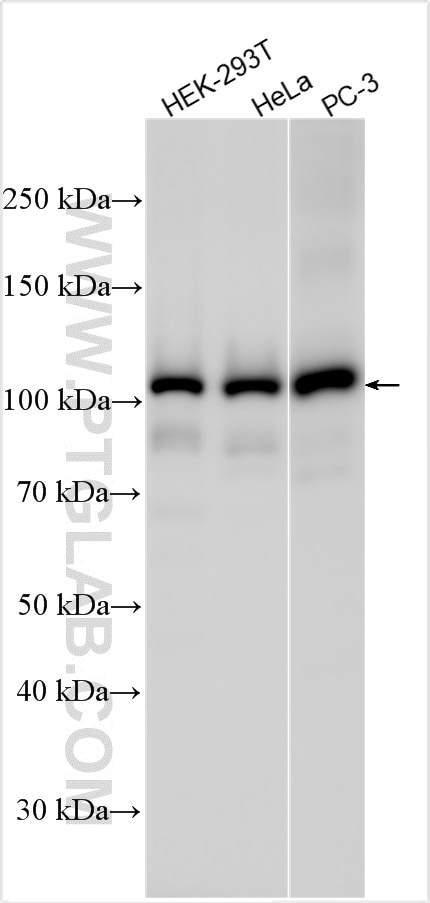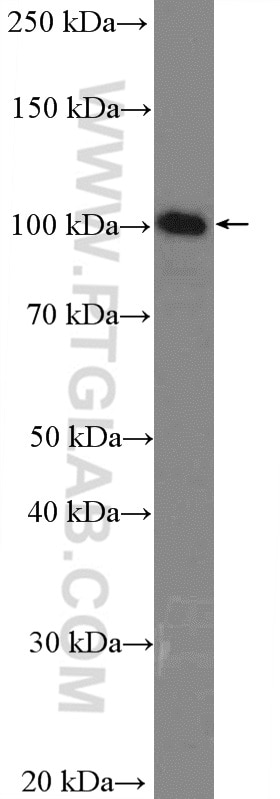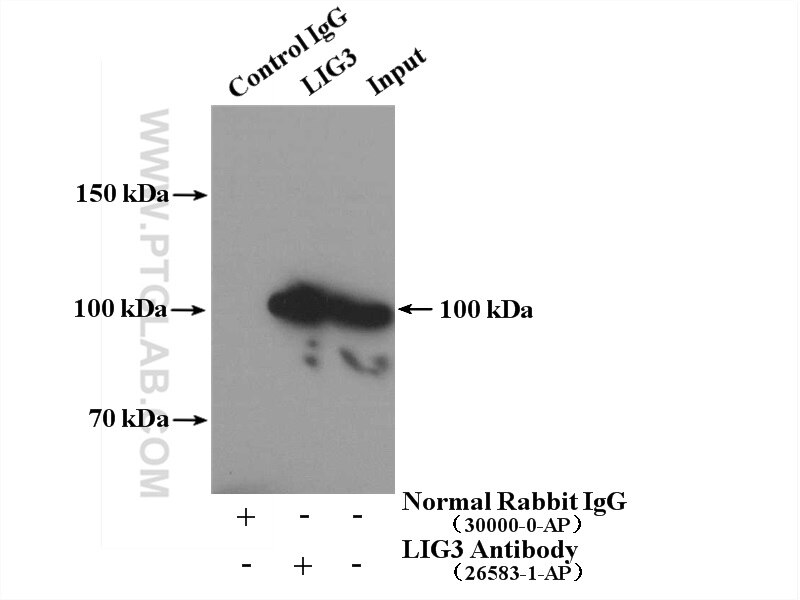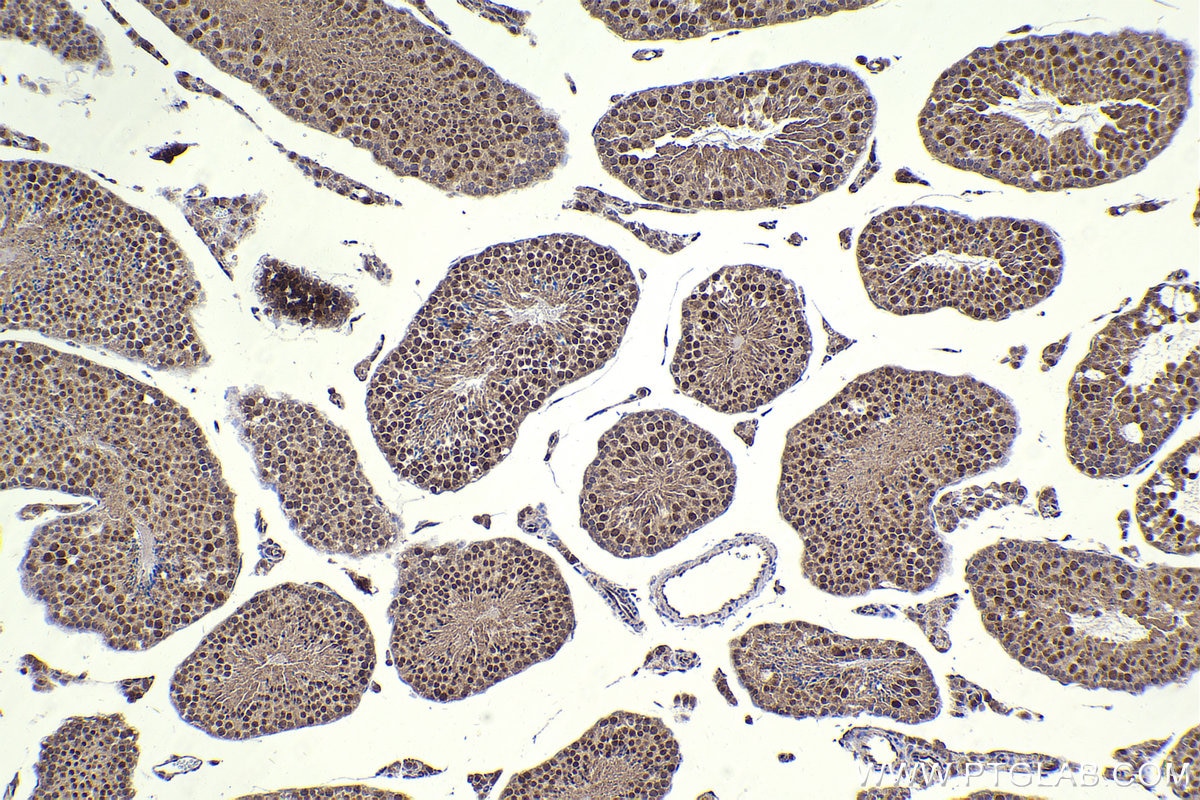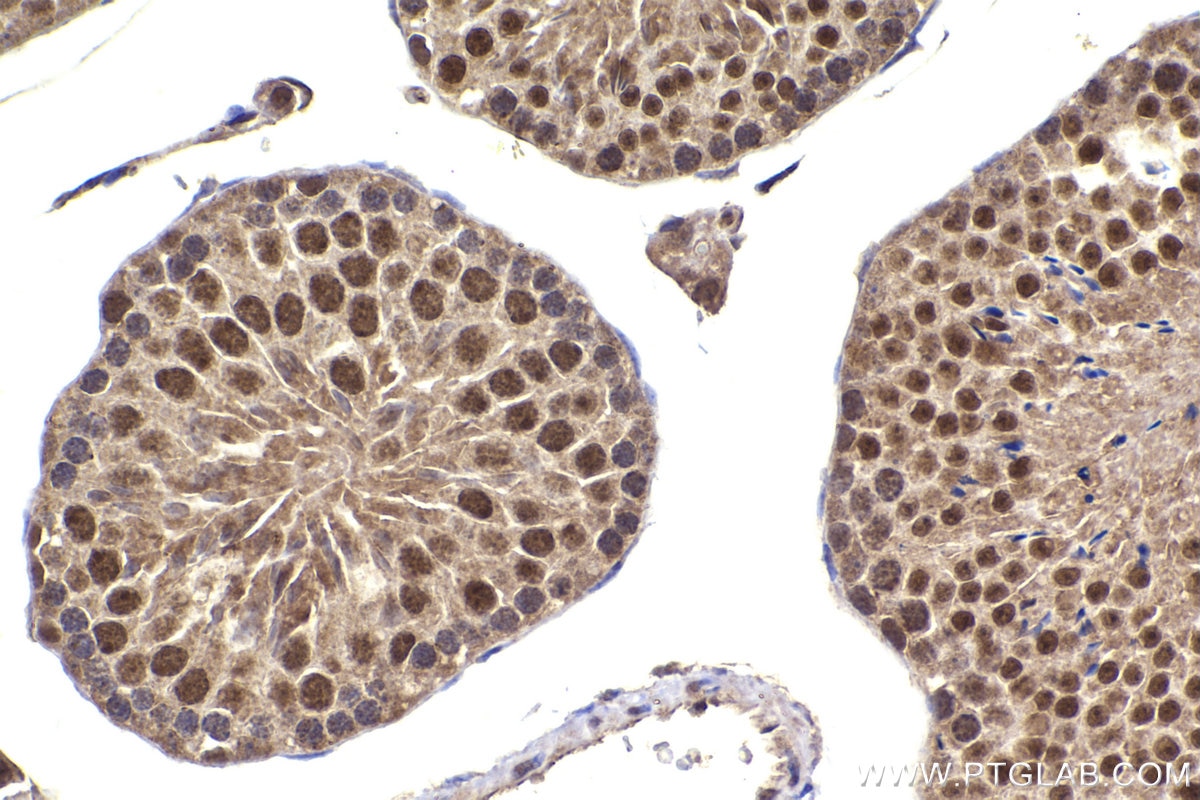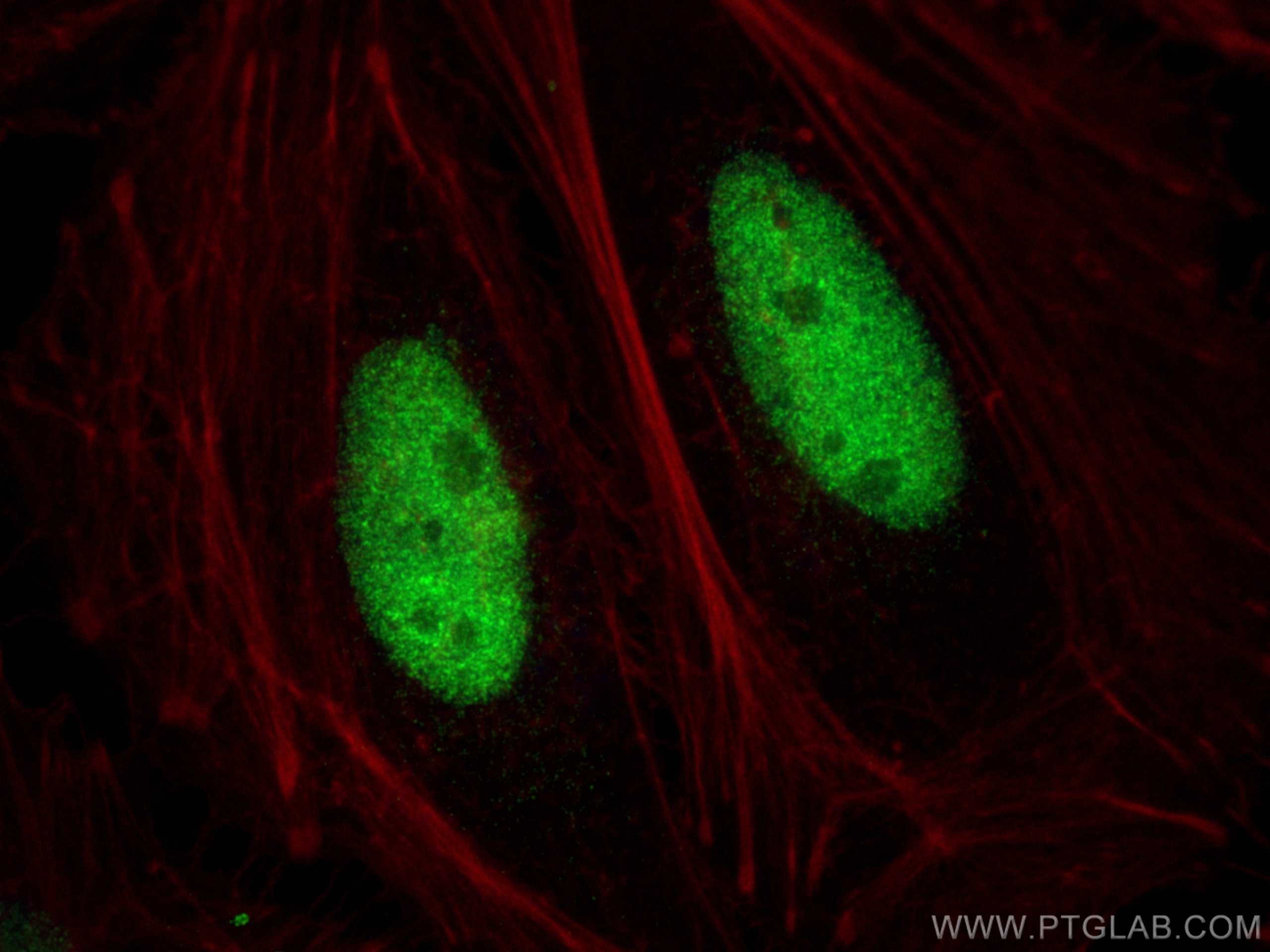Tested Applications
| Positive WB detected in | HEK-293T cells, HeLa cells, PC-3 cells |
| Positive IP detected in | HEK-293T cells |
| Positive IHC detected in | mouse testis tissue Note: suggested antigen retrieval with TE buffer pH 9.0; (*) Alternatively, antigen retrieval may be performed with citrate buffer pH 6.0 |
| Positive IF/ICC detected in | HeLa cells |
Recommended dilution
| Application | Dilution |
|---|---|
| Western Blot (WB) | WB : 1:5000-1:50000 |
| Immunoprecipitation (IP) | IP : 0.5-4.0 ug for 1.0-3.0 mg of total protein lysate |
| Immunohistochemistry (IHC) | IHC : 1:250-1:1000 |
| Immunofluorescence (IF)/ICC | IF/ICC : 1:400-1:1600 |
| It is recommended that this reagent should be titrated in each testing system to obtain optimal results. | |
| Sample-dependent, Check data in validation data gallery. | |
Published Applications
| KD/KO | See 1 publications below |
| WB | See 5 publications below |
| IF | See 1 publications below |
Product Information
26583-1-AP targets DNA ligase III/LIG3 in WB, IHC, IF/ICC, IP, ELISA applications and shows reactivity with human, mouse samples.
| Tested Reactivity | human, mouse |
| Cited Reactivity | human, pig |
| Host / Isotype | Rabbit / IgG |
| Class | Polyclonal |
| Type | Antibody |
| Immunogen | DNA ligase III/LIG3 fusion protein Ag24998 Predict reactive species |
| Full Name | ligase III, DNA, ATP-dependent |
| Calculated Molecular Weight | 100-110 kDa |
| Observed Molecular Weight | 100 kDa |
| GenBank Accession Number | BC068005 |
| Gene Symbol | LIG3 |
| Gene ID (NCBI) | 3980 |
| RRID | AB_2880562 |
| Conjugate | Unconjugated |
| Form | Liquid |
| Purification Method | Antigen affinity purification |
| UNIPROT ID | P49916 |
| Storage Buffer | PBS with 0.02% sodium azide and 50% glycerol , pH 7.3 |
| Storage Conditions | Store at -20°C. Stable for one year after shipment. Aliquoting is unnecessary for -20oC storage. 20ul sizes contain 0.1% BSA. |
Background Information
DNA ligase III(DNA ligase 3) is an enzyme that in humans is encoded by the LIG3 gene. The human LIG3 gene encodes ATP-dependent DNA ligases that seal interruptions in the phosphodiester backbone of duplex DNA. There are three families of ATP-dependent DNA ligases in eukaryotes. These enzymes utilize the same three step reaction mechanism; 1 formation of a covalent enzyme-adenylate intermediate; 2 transfer of the adenylate group to the 5' phosphate terminus of a DNA nick; 3 phosphodiester bond formation. Unlike LIG1 and LIG4 family members that are found in almost all eukaryotes, LIG3 family members are less widely distributed. The LIG3 gene encodes several distinct DNA ligase species by alternative translation initiation and alternative splicing mechanisms.
Protocols
| Product Specific Protocols | |
|---|---|
| WB protocol for DNA ligase III/LIG3 antibody 26583-1-AP | Download protocol |
| IHC protocol for DNA ligase III/LIG3 antibody 26583-1-AP | Download protocol |
| IF protocol for DNA ligase III/LIG3 antibody 26583-1-AP | Download protocol |
| IP protocol for DNA ligase III/LIG3 antibody 26583-1-AP | Download protocol |
| Standard Protocols | |
|---|---|
| Click here to view our Standard Protocols |
Publications
| Species | Application | Title |
|---|---|---|
Brain Biallelic variants in LIG3 cause a novel mitochondrial neurogastrointestinal encephalomyopathy. | ||
Int J Biochem Cell Biol Increasing CRISPR/Cas9-mediated homology-directed DNA repair by histone deacetylase inhibitors. | ||
bioRxiv D-type cyclins regulate DNA mismatch repair in the G1 and S phases of the cell cycle, maintaining genome stability | ||
Nature Retrotransposons hijack alt-EJ for DNA replication and eccDNA biogenesis
|
Reviews
The reviews below have been submitted by verified Proteintech customers who received an incentive for providing their feedback.
FH MANOHAR (Verified Customer) (12-11-2019) | No nonspecific binding
|
